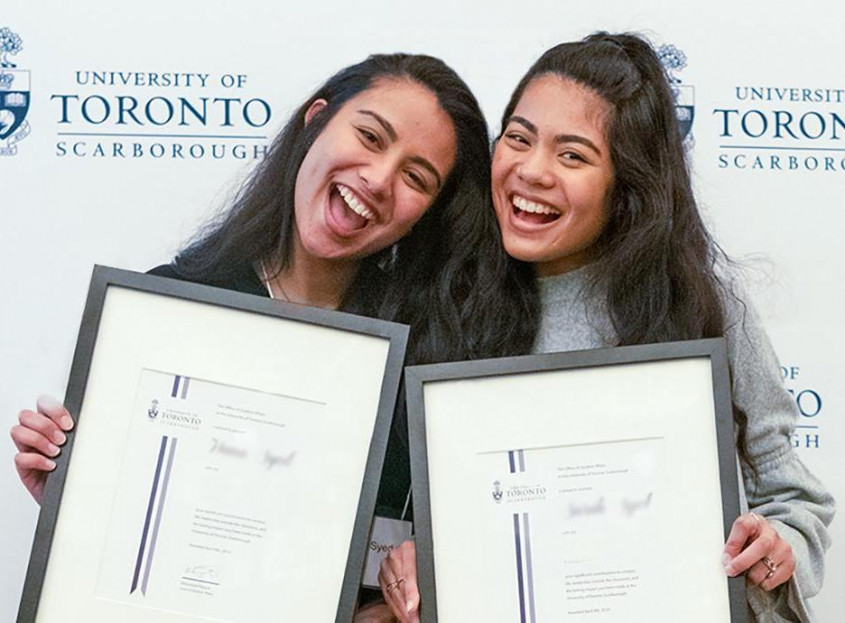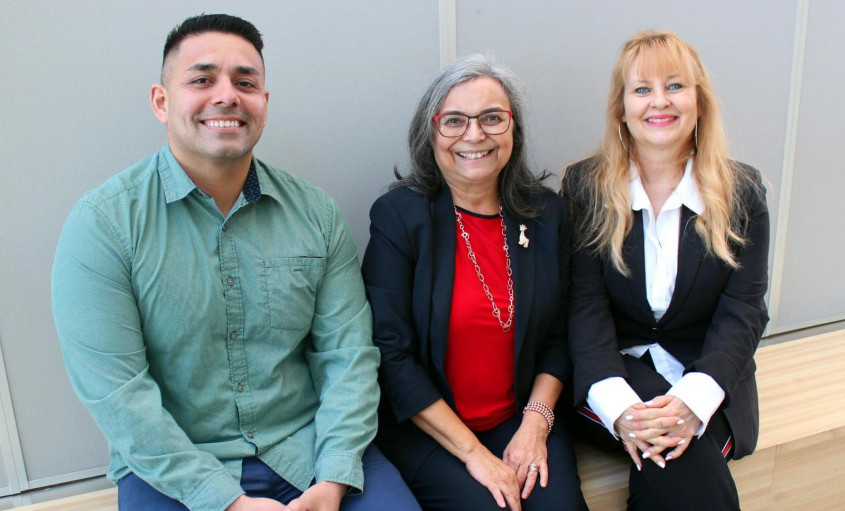November is Financial Literacy Month and it’s time to talk money.
We’ve put together a list of terms you may encounter in your financial journey, and the funding opportunities waiting for you.
WHERE CAN I FIND FUNDING?

Awards Profile/Explorer
Awards can be a great boost for your wallet. U of T offers more than 5,000 awards for undergraduate students and 2,400 for graduate students and postdoctoral fellows. Navigate them all using Award Explorer, a searchable database of all awards across the university.
U of T Scarborough also offers the Awards Profile, which lets you apply for more than 15 awards with one application. Awards are worth up to $7,500 and recognize leadership, excellence in various fields, athletic achievement and more. The portal opens every year in September and closes at the end of May.
Bursaries and grants
Like awards, bursaries and grants are free money, but they’re generally reserved for students who demonstrate financial need. They’re also the last stop in finding funding–you should explore all other options (such as OSAP) before applying.
Grants and bursaries often don’t have a set payout; they vary by student and financial situation. The UTSC Grant and the UTAPS Grant aim to fill the gaps between your financial aid and university expenses. The SCSU Dollar for Daycare Grant covers daycare and babysitting expenses while the Academic Travel Fund supports students travelling to research initiatives and academic conferences.
The provincial and federal governments also offer grants, including the Ontario First Generation Bursary for the first student in their family to attend college or university, and the Ontario Indigenous Travel Grant, which helps with travel costs between First Nations communities and U of T Scarborough.
OSAP loans and grants
The Ontario Student Assistance Program (OSAP) offers funding in two ways. OSAP grants are money you don’t have to pay back, but a student loan is money you’ll have to repay six months after finishing full-time studies. The OSAP Estimator can help you figure out the amount of funding you might receive from the program.
Canadian citizens and permanent residents from outside Ontario may have funding options available from their home provincial or territorial governments; funding can be supplemented with U of T grants.
COMMONLY CONFUSED TERMS

OSAP Academic Probation
Academic probation on its own is a status warning that your grades need to rise. Once you’ve taken at least three full credits (including transfer credits), you’ll be placed on academic probation if your cumulative GPA is below 1.60. But OSAP Academic Probation is different.
When you get full-time OSAP funding, you agree to complete your study period with a full-time course load (more than 1.5 credits per semester, or one credit for students with a permanent disability). If you drop to a part-time course load, you’ll be placed on OSAP Academic Probation. This means you may have to pay back some of your funding—or lose it entirely.
Report any changes to your course load, study period and income throughout the year with the correct forms.To avoid OSAP Academic Probation, remain a full-time student if you’re receiving full-time funding and pass at least three full credits in two semesters (two for students with a permanent disability).
CIFS and repayment
You won’t pay interest on your student loan if you remain a full-time student and apply for a new loan every year. Six months after your last semester as a full-time student, you’ll enter a status called repayment and start paying back your loan.
If you’re on a work term or still studying full-time but aren’t getting OSAP, you can avoid entering repayment and keep your loans interest-free by applying for Continuation of Interest Free Status (CIFS).
You can apply if you’re a full-time student who received OSAP previously but didn’t apply this year, a full-time student who hasn’t received loans by mid-October or a co-op student on a work-term.
Defaulting and good standing
One of the greatest benefits of a student loan is the opportunity to raise your credit score. A high credit score can come in handy later when trying to get a car loan or a mortgage. If you’ve proven you can pay off a student loan, you’ll be seen more favourably by banks. It’s important to never miss a loan payment deadline, apply for CIFS when eligible and know your responsibilities as a borrower.
If you enter repayment and fail to pay off what’s owed (including interest), you’ll default on your loan. This can negatively impact your credit score. If you never default on your loan, you’ll stay in good standing–aim to stay in this state to keep your credit score high.
FINANCIAL GLOSSARY
Direct Deposit: The quickest way to get a refund from U of T. Add your bank information on ACORN to opt in.
Financially Cancelled (FINCA): A status on ACORN from missing the deadline to pay or defer your fees. This removes you from all current courses. You’ll also see this status if you’re placed on academic suspension.
Incidental Fees: Mandatory fees that support student services.
Proof of Payment: A payment receipt or online confirmation message from your financial institution. This shows the university you made a tuition payment.
Specialized Program Fee beginning in Year 2: Program fees are an annual additional charge for students in computer science (except the minor) or management programs. They kick in when you’ve earned 4.0 credits (including transfer credits).
